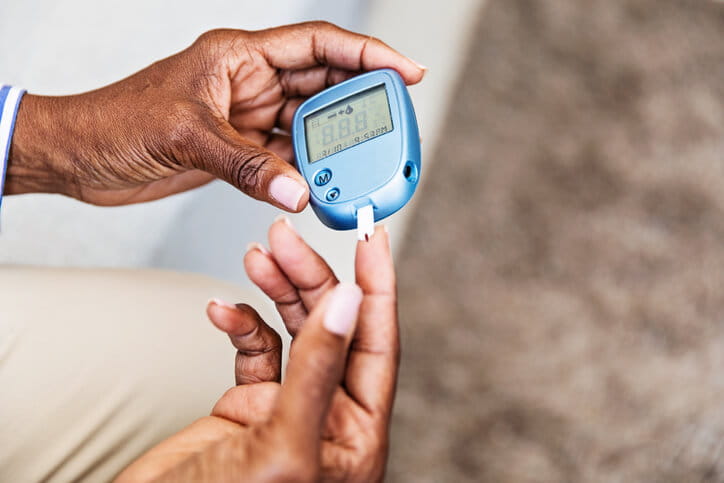Is Diabetes a Disability?

This content was reviewed and approved by Shana Nicholson MSN, RN, CDCES, MLDE, PCCN.
For the millions of people living with diabetes, managing the condition takes time and effort. From monitoring blood sugar levels to adhering to specific diets and medication schedules, diabetes requires constant attention. This has led many to wonder: Is diabetes considered a disability?
The answer involves legal protections, individual health circumstances and specific government programs, as this article explains.
Legal Protection Under the ADA
Under the Americans with Disabilities Act (ADA), both type 1 and type 2 diabetes are generally considered disabilities because diabetes can substantially limit the function of the endocrine system. This legal protection is crucial as it protects individuals with diabetes from discrimination in various settings, including the workplace and public spaces.
It's important to understand that this designation as a disability under the ADA doesn’t mean a person with diabetes is unable to work or live a full life. Instead, it ensures they receive fair treatment and reasonable accommodations to manage their condition.
Qualifying for Disability Benefits
While the ADA provides legal protection, it doesn’t automatically qualify an individual with diabetes for financial disability benefits. To receive Social Security Disability Insurance (SSDI) or Supplemental Security Income (SSI), you must meet a specific and stringent set of criteria established by the Social Security Administration (SSA).
SSDI
This insurance is available to individuals with a work history who have paid Social Security taxes.
SSI
This is a needs-based program for those with limited income and resources.
The SSA evaluates your condition to see if it prevents you from engaging in substantial gainful activity (SGA). This means that your condition is so severe that it keeps you from working and earning a certain amount of income per month.
How the SSA Evaluates Diabetes
The SSA doesn’t have a separate listing for diabetes in its Listing of Impairments, also known as the Blue Book. Instead, the SSA evaluates the complications that arise from diabetes. To qualify for benefits, you must have one or more of the following complications that are severe enough to prevent you from working:
- Neuropathy (nerve damage)
- Retinopathy (vision problems)
- Nephropathy (kidney disease)
- Cardiovascular issues
- Skin infections and ulcers that do not heal
If your complications are not severe enough to meet one of these criteria, you may still qualify for benefits through a medical-vocational allowance. In that case, the SSA considers your age, education, work history and your residual functional capacity (RFC) to determine if there is any work you can do.
Understanding the Application Process for Diabetes Disability Benefits
Applying for disability benefits can be a long and complex process. It can take several months to receive a decision, and some initial applications are denied. It’s essential to have thorough medical documentation from your doctors that details your diagnosis, treatments and the ways your diabetes-related complications limit your ability to work.
Due to the complexity of the process, many people choose to work with a disability lawyer or advocate.
Ultimately, while diabetes is legally recognized as a disability, qualifying for financial benefits is an involved process. The focus isn’t just on the diagnosis of diabetes, but on the severity of its impact on your ability to work and function in your daily life.
Talk With Your Healthcare Provider About Diabetes
Diabetes is legally recognized as a disability. However, not everyone qualifies for financial benefits. The focus is not just on whether you have the disease, but on the severity of its impact on your ability to work and function in your daily life.
If you have questions about your diabetes diagnosis or have new or worsening symptoms, talk with your healthcare provider. Find support through our outpatient diabetes education programs.
If you don’t have a Baptist Health provider, call 1.844.964.0760 or find one in our provider directory.
Next Steps and Helpful Resources
Learn More About Diabetes Care at Baptist Health
Is Diabetes Genetic?
What Is Prediabetes?
Foods to Avoid With Diabetes



